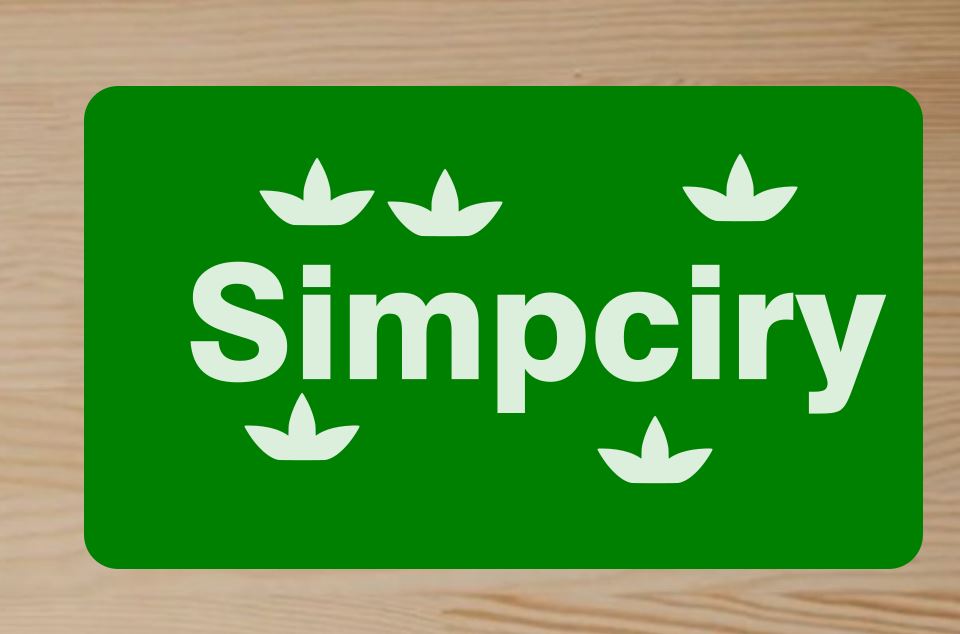Ever stumble upon a word that just feels good to say? One that sounds like a smile feels—warm, genuine, and a little bit soft? That’s the magic of Simpciry. It’s not a product, an app, or a corporate wellness strategy. It’s something far more organic and far more human: a brand-new piece of linguistic DNA born from the heart of online communities, designed to describe the beautiful, often-unnamed feeling of pure, unadulterated kindness.
This isn’t a word you’ll find in a dusty dictionary. It’s a living, breathing term being defined by how people use it. And right now, they’re using it to carve out pockets of warmth in a digital world that can often feel cold and loud. Let’s unpack this delightful linguistic invention.
Deconstructing the Vibe: What Does Simpciry Actually Mean?
At its core, Simpciry is a portmanteau—a blend of two words. It takes “simp,” a term that, in its most positive evolution, describes someone who is unashamedly supportive and caring (often toward a content creator they admire), and smooshes it together with “city,” implying a place or a community.
The result? A word that means “a place full of supportive, kind people.” It’s the feeling of a digital (or real-life) space where everyone has each other’s back. If a group chat is constantly hyping each other up, that’s Simpciry. If a Discord server is a haven of patience and encouragement for beginners, that’s Simpciry. It’s the emotional texture of a community, not its physical structure.
The Birth of a Feeling: Where Did This Word Come From?
Trying to pin down the exact origin of an internet-born word is like trying to find the first drop of water in a river. It emerges from the collective consciousness. Simpciry almost certainly bubbled up from the fertile grounds of platforms like TikTok, Twitter, or niche gaming and fan forums.
These are spaces where users are constantly creating new slang to describe their unique social experiences. They needed a word for that specific, glowing feeling of being in a truly positive community. “Wholesome” was close, but too broad. “Supportive” felt too clinical. They needed a word with personality, with heart. And so, the word was born—a creative, open-sourced term defined by its feeling, not a textbook definition.
Speaking the Language: How to Use “Simpciry”
The beauty of a new word is putting it into practice. Its usage is wonderfully flexible:
- As a Compliment: “Your stream’s chat isn’t just friendly, it’s total Simpciry. I love hanging out here.”
- To Describe a Moment: “When everyone in the meeting volunteered to help me with my part of the project… it was such a Simpciry moment, I almost cried.”
- To Name a Space: “This artist’s Patreon isn’t just a fan club; it’s a genuine Simpciry.”
Why This Word Sticks: The Psychology
Why is this particular neologism catching on? It’s not an accident.
- It Fills a Gap: We’ve had words for things and actions, but fewer for atmospheres. Simpciry perfectly labels a specific social vibe we all recognize but struggled to articulate.
- It Sounds Like What It Means: The word itself is soft, with gentle consonants. It sounds friendly and inviting, mirroring the feeling it describes.
- It’s Exclusive in the Best Way: Using it feels like being part of an inside joke or a secret club of kind people. It’s a verbal handshake that says, “I see and value this positive energy too.”
Weaving Minimalist Lifestyle Into Your Own Life
The best part about this concept is that it’s not passive. You don’t just find Simpciry; you create it.
- Notice It: Start by being an anthropologist of kindness. When you see a group being proactively supportive, mentally label it. “Ah, look at that Simpciry in action.”
- Name It: Give the compliment. Telling a friend, “Your home has such a sense of Simpciry,” is a profound and memorable compliment that acknowledges their effort in building a warm environment.
- Build It: Be the catalyst. In your own online groups or IRL circles, be the one who offers unsolicited support, who hypes up others’ wins, and who practices active listening. You’re not just being nice; you’re architecting a micro-city of Simpciry.
The Bottom Line
Simpciry is more than just a fun word to say. It’s a cultural marker. It signals a growing collective desire for more meaningful, positive, and supportive connections. It’s a testament to the internet’s ability to generate not just chaos and noise, but also tools for building warmth and community. In giving us this word, online culture has given us a new lens to see—and create—more kindness in the world.
FAQs About Simpciry
Is being called “Simpciry” a good thing?
Absolutely. It’s a high compliment. It means you or the space you’ve created is recognized as being exceptionally kind, supportive, and positive. It’s being praised for fostering genuine warmth.
Can Simpciry exist outside of the internet?
Without a doubt. While the word was born online, the feeling is universal. A book club that feels like a family, a coffee shop where the baristas know everyone’s name, a workplace where colleagues truly champion each other—these are all real-world examples of Simpciry.
How is this different from just being “nice”?
“Nice” is often passive. Simpciry is active and communal. It’s not about one person being polite; it’s about a whole group culture of proactive support, emotional generosity, and mutual care. It’s the difference between a quiet street and a tight-knit neighborhood block party.
Could this word become mainstream?
It’s possible! Language evolves based on need. As more people seek to describe and cultivate positive communities, a catchy, meaningful word like Simpciry has a strong chance of moving from niche internet slang into wider conversation.
Read Next:
